- Home
- Pierce, Blake
Vengeance in Vienna Page 5
Vengeance in Vienna Read online
Page 5
He grunted. “Ah, the two friends! Never can go wrong with Schubert’s 8th. And Beethoven’s 4th is a good one. You know that both were performed for the first time in Vienna?”
She nodded. Well, she knew half of that.
“And you can visit their graves at Zentralfriedhof, here? Schubert, Beethoven, the Strausses, Brahms . . . they are all buried here in the city.”
She nodded, unsure. She might have considered it, but she’d done something similar in Paris and wasn’t sure she wanted to make her year in Europe a grave-finding trip. It sounded too morbid.
“But Huber . . . I find him a bit too heavy-handed for my liking.” He stroked his double chin. “You know, a musician’s demeanor is as original as a fingerprint. The untrained ear may hear a piece of music and say, well, it is Brahms. Or it is Beethoven. And Beethoven is Beethoven. But musician interpretation is everything. And a matter of opinion. Huber is popular, just not my cup of tea. He seems to—how shall I say? Dally. I don’t see that he has a particular style. Some say Liszt, but I think that’s just his demeanor. He’s popular with the ladies.”
That wasn’t the first time she’d heard that. “Maybe you can answer a question I was wondering about. What do the words on front of the Musikverein mean?”
“Gesellschaft der Musikfreunde? It translates roughly to ‘Society for the Friends of Music.’”
“Oh, interesting.” She scrabbled for her phone. “Anyway, I’m in a bit of a rush because I should be getting to the music hall in a bit. I don’t want to be late for the performance.”
“That’s all right. You can leave at any time,” he said, unconcerned, as the waiter came by with a place setting for him. He unfolded the napkin and stuck one corner into the collar of his shirt, like a bib. Then he said to the waiter, “Wiener schnitzel. Und Kalbsrahmbeuschel.”
Diana didn’t even want to know what that was. At that moment, her wiener schnitzel came, golden fried, with a heaping helping of fries. It smelled heavenly, which was good, because Hans brought with him the stench of stale beer and something sour.
“Really, though,” she said, wondering if she could lie, make up a husband that had “left to use the restroom?” Excuse herself to use the restroom, then climb out a window? Pretend to choke on a fry and get carted off to the hospital? None of her ideas seemed feasible. “It’s quite crowded here. Don’t you think you might be more comfortable somewhere else?”
He chuckled. “How could I be? Here, I am in the company of the most beautiful woman in the place.”
Then he put his hand, meaty and sweaty, on hers.
Horrified, she snatched it away. He clearly wasn’t getting the picture. He reached over, and without asking, grabbed a fry from her plate and tossed it in his mouth. Maybe he’d paid her the compliment, just so she’d let him have one. She took a fry and bit into it, then checked her phone again.
“Oh. Wow. It is getting late!” It wasn’t, really, but even if she got there early, she was sure she’d find a lot to explore at Musikverein. She motioned to the waiter. “Check, please.”
She noticed that he made no offer to pay for her. Not that she wanted him to. In fact, she would’ve been fine if she never saw him again, the rest of her time in Austria. She quickly handed her credit card over to the waiter, counting the moments until he returned, as Hans told her some story about the first Kalbsrahmbeuschel he’d ever had, made by his grandmother in Bischofshofen when he was only a lad. Apparently, it was some kind of food, and apparently, it had been love at first taste.
She quickly signed the check and pocketed her card, then sprang up. Hans struggled to, too, which was actually gentlemanly of him, but then he gave up the fight and settled back down. He picked up one of her fries. “You’re not eating this?”
She shook her head. “No. Sorry. I’ve got to go.”
“Mind if I . . .” He was already picking up a fork and licking his lips as he gazed at it.
“No. Knock yourself out. It was nice talking to you,” she said. “Maybe I will see you around somewhere.”
He said something that might have been Enjoy the concert, but his mouth was already full of food.
When she got outside, she gulped the fresh air and sighed. Funny; just when she’d been lamenting dining alone, the universe happened to drop Hans on her. Well played, universe. If that wasn’t a reminder to just be happy with her own company, she didn’t know what was.
As she prepared to cross the street, she looked back at the restaurant. In another life, not long ago, she’d been a Marketing Director at one of the biggest cosmetics companies in New York, unafraid of being a lioness, often telling people what to do and ruffling feathers for the good of the company. But when it came to telling people what to do for her own good, she was more like a mouse. She’d spent nearly half an hour in that man’s company, completely miserable, when she should’ve just told him that she wasn’t interested.
“I need to get some more backbone,” she murmured aloud, turning to stare at her reflection in the glass window of the restaurant. She looked utterly flustered. “You’re a grown woman. Learn to stand up for yourself, Dear.”
As she was staring at her reflection, she happened to look past it and see Hans, mouth full, cheeks on the verge of popping, waving excitedly at her. The table in front of him was full of plates of food. Had he ordered one of everything after she left?
Standing under the overhang, she noticed it’d begun to drizzle. She reached for the umbrella she kept in her bag, but after a moment’s thought, pulled out her itinerary. Grabbing her pen, underneath Be moved to tears by beautiful music, she wrote, Stand up for yourself!
She underlined it a few times, then pocketed it before opening her umbrella. People were beginning to crowd toward the music hall, stepping through scattered puddles and dodging raindrops as they went. Diana followed them, promising herself that the next time she was in an uncomfortable situation, she’d speak her mind.
But right now, it was time to let the music move her.
CHAPTER SIX
Diana spun around inside the Golden Hall of Musikverein, hardly able to believe she was there.
She’d seen the gilded, ornate walls of the theater every year, while watching the New Year’s Concert on PBS. The long, glimmering, shoebox-shaped hall was so opulent and cheerful, bordered on each side by high balconies. Every surface was an explosion of scrollwork and color, and fresh flowers burst from vases everywhere. Above, ten great, glittering chandeliers filled the room with abundant light. The seats on the floor, though, were the best ones. So she was shocked when the usher led her to a seat in the center aisle, only a few rows from the stage. She scanned the stage, her eyes going all the way up the wall beyond it, to the massive pipes of an organ. Above her, frescos of angels were painted on the ceiling, a detail she hadn’t noticed while watching this on television.
“Enjoy,” the young usher said as he pointed her toward her seat.
She practically skipped over to the row and stood there, checking her distance from the seat to the stage. It was so close; she could almost reach out and touch the grand piano in the center of it. “I’m sure I will!”
He grinned at her, clearly amused by her obvious excitement. He was probably not much older than eighteen, his face still dotted with acne, tall, but skeletal and lanky. The usher’s dapper three-piece tux didn’t do much to age him. “It’s quite a place, eh?” he said, and even his voice had a bit of a prepubescent squeak to it.
She nodded.
“And the acoustics are even better. Just you wait. I know. I dreamed of working here when I was a kid, just like Brahms had. Now, I finally do. Started here when I was sixteen, but I still come to work excited, every day. I love it here.” He looked around, pride shining in his eyes, like a child showing off his bedroom trophy collection. “And you have one of the best seats in the house!”
“You think?”
“Sure. If you’re too close, you can’t see the whole orchestra. Too far away, and you would
n’t be able to see the magic the pianist does with his fingers. From that seat, you can see it all! In fact, if I had to pick any seat in the place, it would be that one there.”
“Oh, thank you!” She clapped her hands together in excitement.
I can’t believe I’m finally here! How many other things have I not noticed while watching on my television set? This place is bigger than I thought. The seats are smaller. And I bet the music will sound a million times better in person!
Her seat was three in, in row four. As she squeezed around a man and woman, saying “Excuse me,” she gazed at the stage. It was so close, she could almost reach out and touch the performers. She settled into her seat, then opened the program and read a little about all of the performers and the Vienna Philharmonic. The conductor was new to the Philharmonic, though he had an impressive list of credentials, but the person she zeroed in on was Lukas Huber himself.
The photograph of him was stunning—he was older than she’d expected, maybe in his early forties. He had long dark hair that fell upon his shoulders, a pronounced, strong jaw coated in stubble, and though his eyes were as dark as coal, he gazed at the camera in a way that smoldered. She’d heard of his talent, but she hadn’t expected him to be so, well, attractive.
She read his bio:
Lukas Huber is a composer and pianist virtuoso from Vienna, Austria. He was born in Innsbruck, and began studying the piano when he was only five years old. He studied music in Salzburg and in Montreal.
His career took a major leap when he won the 2005 international competition in Carnegie Hall. Ever since then, he has been recording and performing around the world. Apart from his work as a first-rate pianist, Huber is renowned for his admirable composing skills. His compositions include a set of many symphonies and piano etudes, which have been performed all over the world. Tonight, he is excited to bring to you his most ambitious work yet, the grand Jupiter Symphony. Jupiter, God of Thunder and Sky, is King of Gods, and according to Huber himself, “This symphony suggests pure power on a massive scale, harnessed, in musical form.”
His work is notably comparable to the great Franz Liszt, according to many critics, but hints of Beethoven, Bach, and Mozart can also be found in his unique and inspired compositions.
She looked up, even more excited, at the gorgeous Bösendorfer Grand piano that was only a few yards away from her. In just a few minutes, he’d be right there. Almost close enough to touch!
The hall continued to fill up, everyone dressed to the nines, in a way that made Diana feel underdressed, even in the fanciest dress in her suitcase. They all looked as if they were about to attend a Long Island wedding—the men in suits, the women in gowns or tea-length dresses.
Diana moved her legs aside to let another couple sit to her right.
“Entschuldigung!” the woman said as she stepped on Diana’s toe.
Diana winced and looked up, and realized that it was Blondie, from the restaurant. Of course it is. With my luck, they’ll start making out during the performance.
She flounced down next to Diana, smelling so strongly of some perfume that it made Diana’s eyes water. From here, even though she didn’t want to, Diana could see right into the cleavage of her tight-fitting spaghetti-strap gown. She tossed her blonde mane playfully, slapping Diana in the face with her curls, and said, “Oooh, Gunther. What songs are they going to play?”
Diana fought the urge to roll her eyes. The young woman reminded her so much of Evan’s fiancé, Tilda, better known as Vidal, since she was all about her hair. But in Verona, she and Tilda had come to an understanding, and in the end, Diana had given Tilda and Evan her blessing and wished them well. Sometimes that was the best thing to do—just let go.
So when the woman hogged her armrest, Diana closed her eyes and tried to channel that feeling.
Forgive. Feel the calmness and clarity of letting go.
She reached into her bag, pulled out her itinerary, and wrote that down underneath Stand up for yourself!
Of course, the two things had to war with one another. Part of her wanted to forgive Vidal Part Two for stepping on her toe and constantly slapping her with her sweet-smelling locks. And part of her wanted to scream, Do you mind?
But she didn’t have time to do either. A moment later, the lights dimmed, signaling the show was about to begin. The chatter died to an absolute silence. When the lights came back on again, the musicians began to file into the rows on the stage and pick up their instruments. Some of them tuned them, others looked at their music.
Diana held her breath as a tall man in a tuxedo and tails walked out—the concertmaster. He watched and listened as the other members of the orchestra tuned their instruments. Diana watched closely. This is another thing they never show you on PBS!
When he finished with the other members of the orchestra, he picked up his own violin, and the violinists followed suit, tuning their instruments. When complete, the notes died down.
Then, the conductor walked out, to loud applause.
He bowed, stood at his podium besides the piano, tapped his wand, and the orchestra began to play.
The music filled the hall, easily proving why this hall was renowned above all others. Despite the quiet start, the acoustics were lovely. It was another one of her favorite pieces, Schubert’s Symphony No. 8, the Unfinished Symphony. Only two movements long, it was unforgettable; it had always stuck with her. At times, when listening to this music with her grandmother, she’d felt very moved by the beauty of it. It started simply, with the cellos in the background providing a nervous shimmer, before the oboe and clarinet came in, playing a lilting, haunting melody over the murmuring strings.
Diana felt goosebumps popping up, all over her bare arms. Beautiful, but not quite enough to move her to tears. She often felt close to crying, even watching the orchestra on television, as the violinists swayed to the melodies, bows moving in unison, getting lost in their music. Now, she felt closer, but not quite there. Not enough to be able to cross the item off her bucket list. Maybe I want it too much.
The first movement came to an end. The music hall fell into absolute silence. No one even coughed or moved. It was always hard, during those between-movement times, after hearing something so beautiful, to fight the urge to applaud wildly. She moved to the edge of her seat, waiting for the next and final movement to begin.
As she did, there came a loud, instantly recognizable tinkling sound, from somewhere off stage. Diana shook her head as the tune went on.
Oh, for goodness sake! Some idiot forgot to silence their phone.
People looked around, trying to figure out where the sound was coming from. Even the conductor dropped his raised hands and looked over his shoulder.
It was The Entertainer, coming from somewhere very nearby. Diana stiffened. I’ve heard that before.
The thought hit her an instant later: Of course you have, dummy. That idiot is you! It’s YOUR phone!
Diana jumped to action, grabbing her phone from her purse and switching it to silent. Hadn’t she done that before? She was sure she had, but she must’ve pushed the wrong button.
Next to her, the blonde woman glared and let out a groan of disgust. “Do you mind?” she said, her voice dripping with irritation. She leaned in to whisper something to her beau, that sounded like, Some people have no class.
Forgive. Feel the calmness and clarity of letting go, she thought, gritting her teeth and warding off the desire to elbow the woman in the boobs.
When she finally silenced the phone, heat growing in her cheeks, she looked around at her companions, who were all staring at her with indignation, and mouthed, I’m sorry.
The music went on. By then, Diana was too embarrassed to get into the music. Eventually, though, the chagrin faded, and she was able to close her eyes and let the melody carry her away. She felt it lift her troubles from her shoulders and relax her, as it always had when she’d curled up on the rug of her grandmother’s living room. Here she was, in the greatest music h
all on Earth, listening to the greatest orchestra on Earth. Could there be anything better?
But no tears.
Not a single one.
When the symphony ended, Diana applauded loudly, along with everyone else. The conductor nodded to the audience, then presented the orchestra, then nodded again. When the applause died down, he left the stage.
The next time the conductor walked out, he was not alone. With him was the startlingly handsome man Diana recognized from his photograph in the program.
Lukas Huber.
He’s here! Diana thought. The next Beethoven! Here it comes. Now I am definitely going to hear music that will move me to tears!
CHAPTER SEVEN
Dressed in a tux with gray cravat, Lukas Huber smiled self-assuredly, a bit of a swagger in his walk. He didn’t appear the least bit nervous or even concentrated on his work, as many virtuosos often did prior to a performance. In fact, whereas most performers wanted to get the show on the road, Lukas Huber seemed to delight in the applause, as if he would’ve been fine with it continuing and delaying his performance indefinitely. He even waved. The applause continued on, until Diana wondered if the performance would ever begin.
Then he lifted his tails and sat at the Bösendorfer Grand piano. Diana shifted in her seat to get a good look at him around the heads of the other people in front of her in the audience. He nodded to the conductor, placed his hands on the keys, bent low to the piano, and began to play, quietly at first.
The conductor lifted his hands, and the violins joined in, answering the piano’s melody. It was a balanced dialogue between the instrument and the rest of the orchestra, sometimes lively, sometimes mournful.
Diana listened, hardly able to breathe, thinking of the way her grandparents used to love this concerto. And this rendition was by far the best one she’d ever heard. Watching Huber there, live, right in front of her, as his hands masterfully caressed the keys, was astounding. She always wondered how pianists could play such long pieces without the music in front of them, but it was a testament to how well-rehearsed and talented they were. He went on, eyes closed, swaying to the music, his fingers working a frenzy on the keys, sometimes moving so fast that it was impossible to see them. It was awe-inspiring, certainly.

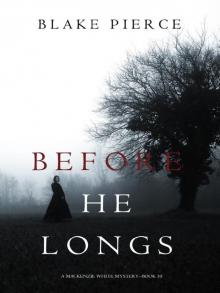 Mackenzie White 10-Before He Longs
Mackenzie White 10-Before He Longs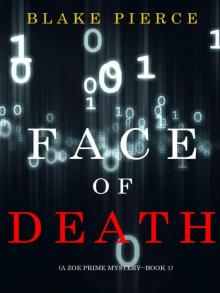 Zoe Prime Mystery 01-Face of Death
Zoe Prime Mystery 01-Face of Death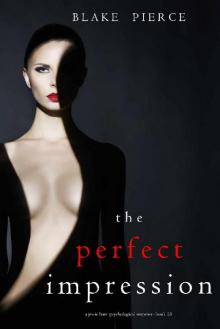 The Perfect Impression
The Perfect Impression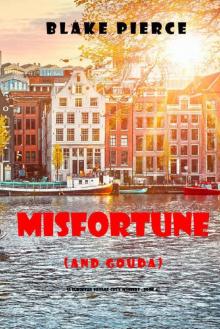 Misfortune (and Gouda)
Misfortune (and Gouda) Vengeance in Vienna
Vengeance in Vienna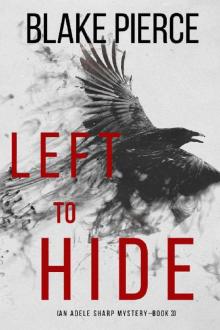 Left To Hide
Left To Hide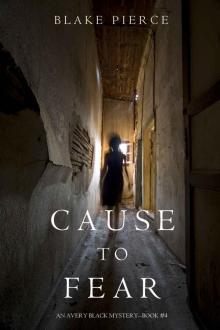 Cause to Fear
Cause to Fear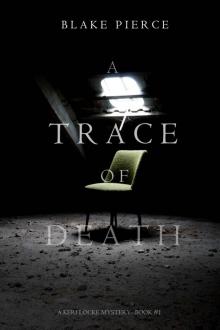 A Trace of Death (A Keri Locke Mystery--Book #1)
A Trace of Death (A Keri Locke Mystery--Book #1)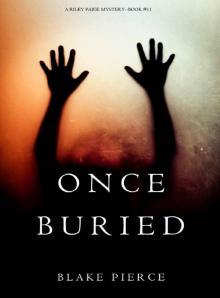 Riley Paige 11-Once Buried
Riley Paige 11-Once Buried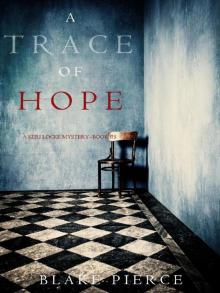 Keri Locke 05-A Trace of Hope
Keri Locke 05-A Trace of Hope